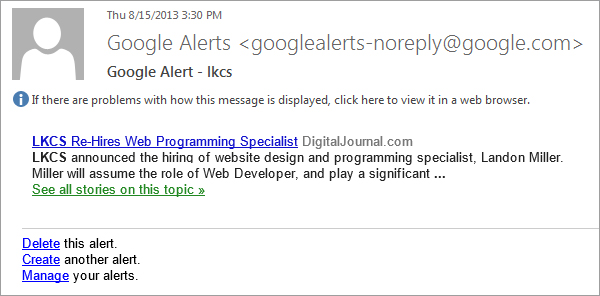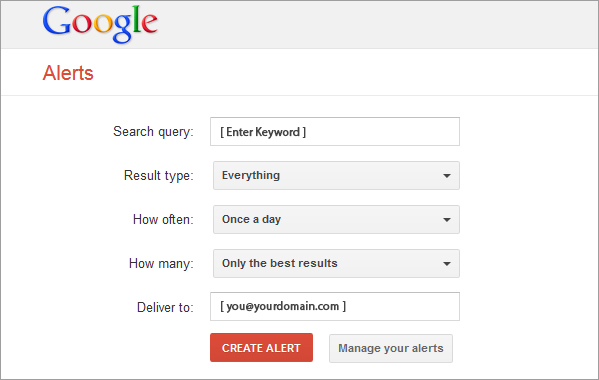If a conversation takes place online and your financial institution isn’t there to hear or see it, did it actually happen? As a matter of fact, yes, it did!
For many institutions, the idea that conversations are taking place online with or without their involvement is the hardest fact to come to grips with. If you are not leading the conversation, or in some way active in it, then you’re leaving it to others to do so on your behalf… and that can be scary!
Think about this for a second. Who is talking about your financial institution, and is the information being presented accurately?
Enter Google Alerts. Google Alerts is a free notification service that banks and credit unions can use to quickly and easily monitor their online reputation.
What are Google Alerts?
Google Alerts are email updates of the latest relevant Google results (web, news, etc.) based on keywords and phrases that one is interested in. Users can enter a search query that they wish to monitor and Google will send them an email for whenever something new is indexed.
For example, at LKCS we’ve created a Google alert on the term “LKCS” as well as our key brand terms. Anytime Google finds a new mention of our company on any site throughout the web, our teams are notified via email.

What are the benefits to using Google Alerts?
The very obvious benefit for using Google Alerts is the ability to monitor a topic, or multiple topics, with ease. Google’s spiders are constantly crawling the web in search of new content, and are often aware of new blog posts, press releases, and website content changes within hours of them being published. Instead of having to go to Google and perform manual searches on each topic, users can apply the “set it and forget it” attitude and wait for news to come to them.
Additionally, the speed at which users are notified is also a benefit. Consider for a moment that your bank or credit union has an irate account holder and that this person has posted a negative comment about their recent experience. Getting notified of this instance and having an opportunity to address it quickly is a great way to ensure small flare-ups don’t become brand-damaging fires.
How to Setup a Google Alert
Setting up a Google Alert is quick and easy. Simply following these instructions:
1. Visit www.google.com/alerts.
2. Login using your personal Google login.
3. Fill out details of your alert (5-Steps):

Search query: The keyword, phrase, or topic that you’d like to monitor.
Result type: The type of results you want Google to find and notify you of.
How often: The frequency in which Google will notify you.
How many: The number of results you want Google to provide.
Deliver to: The email address you’d like your notification to be sent to.
Did you like this blog post?
Get more posts just like this delivered twice a month to your inbox!



